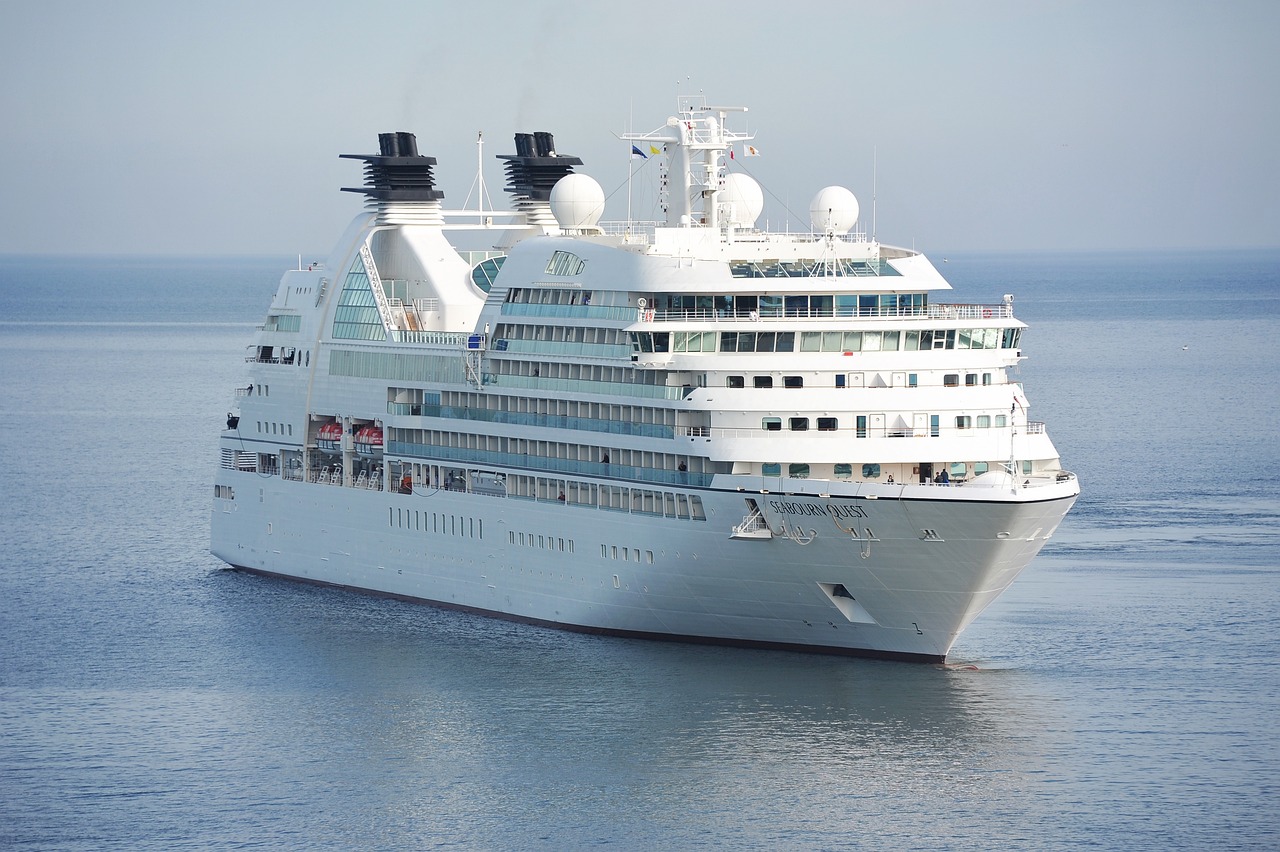Empty Cruise Ships Another Absurd Result of 1886 Maritime Law
COMMENTARY

Cruise ships sailing empty? It’s a recipe for financial loss, and cruise operators avoid it whenever possible. But it does happen.
As reported by Newsweek, it happened in May, when Royal Caribbean’s Adventure of the Seas sailed without guests from Galveston, Texas, to Fort Lauderdale, Florida, as part of the company’s plan to “reposition” the vessel’s homeport.
The reason for the passengerless cruise was simple: Cruise ships sailing from one U.S. port to another are subject to a federal law known as the Passenger Vessel Services Act.
Similar to how the Jones Act applies to merchandise, the PVSA requires that all vessels moving passengers between U.S. ports be U.S. built and flagged, and mostly crewed and owned by Americans. So because the Adventure of the Seas was foreign flagged and built, it was barred from taking passengers along for the ride to its new homeport in Fort Lauderdale.
How did such a persnickety, inefficient law come about?
The PVSA was signed into law way back in 1886 by President Grover Cleveland, before the advent of air travel. It was intended to protect U.S. passenger liners from foreign competition, and for a long while, it did. But not anymore.
Despite having the PVSA in place, the last time a large cruise ship was built completely in the United States was in 1958. These days, all large passenger ships that serve U.S. consumers are foreign built — even Norwegian Cruise Line’s ironically named Pride of America.
A U.S. company started building the Pride of America with federal subsidies in 2000, but went bankrupt before the vessel was complete. It sold the unfinished hull to NCL, which finished the construction in Germany.
Now considered a foreign-built ship, the Pride of America needed a special exemption from Congress to operate as if it were U.S. built. The exemption was granted, but it limited the ship’s operations to Hawaii waters only.
Unlike all other foreign-built cruise liners, the Pride of America can carry passengers from one Hawaii port to another without the inconvenience and expense of having to stop in another country. In other words, it is exempt from the PVSA’s “closed loop” rule for foreign vessels.
Under this weird regulation, foreign cruise ships can offer roundtrip cruises that start and end at the same U.S. port, but they must make a stop at a “nearby” foreign port along the way.
This is why most cruises that go from Los Angeles, California, to Hawaii and back stop at Ensenada, Mexico. Likewise, cruises between Seattle, Washington, and Alaska typically stop at Canadian ports such as Vancouver or Victoria.
Similarly, when a foreign cruise ship wants to “reposition” to another homeport, as Royal Caribbean did with its Adventure of the Seas, the vessel has to travel empty. Outside the United States, on the other hand, travelers can actually get reduced-price tickets for such “repositioning” cruises.
The absurdities of this “closed loop” rule came into sharp relief in 2021 when cruises from Washington state to Alaska aboard foreign-built ships had to be canceled because Canada was still barring cruise ships from entering its harbors as part of the country’s COVID-19 lockdowns.
It took action from Congress to temporarily suspend the PVSA so Alaska wouldn’t totally miss out on its summer cruise season, which many communities in the last frontier depend on for income and tax revenue.
Another irony: The suspension was opposed by Canadian interests, who actively advocate that Congress keep the PVSA in place. Vancouver alone rakes in hundreds of millions of dollars each year from U.S.-based cruise ships making those mandatory foreign stops — which, of course, is money that the cruise passengers could be spending in Alaska.
Taking note of the money involved, Panama announced last year that it had hired a lobbyist to help it also get in on the PVSA action. The country is considered a nearby port under the PVSA, but it’s not as close as Ensenada. So what Panama really would like is to be classified as a “distant” port.
That’s because if foreign ships serving the U.S. market stop at a distant port — more commonly ports outside of North and Central America — they don’t have to abide by the closed-loop rule and drop passengers off at the same port from which they started. This part of the law enables around-the-world cruises, such as ones that start in San Diego, California, and end in Miami, Florida.
Panama understandably wants to boost its tourism industry by convincing Congress to designate it as a distant port instead of a nearby one. The new designation would unlock creative itineraries, such as a one-way Florida-to-California sailing through the Panama Canal with a convenient stop in Panama to make it legal.
But the question remains: Why are we allowing the PVSA to stand in the way of that happening in the first place?
Panama’s effort is another head-scratching indicator that the PVSA forces inefficiencies on cruise lines and their passengers and exports millions of tourist dollars abroad.
What if that money were spent in U.S. ports instead? How many small businesses could open in U.S. ports if cruise ships were allowed to skip mandatory foreign stops? How much tourism spending could U.S. cities gain if Congress allowed foreign ships to operate U.S.-only itineraries?
Congress and maritime policy leaders need to ask themselves: Who in our modern-day world is really benefiting from this arcane, 137-year-old law anyway? Let’s have an honest conversation about how to best reform or repeal this unseaworthy relic.
Jonathan Helton is a policy researcher at the Grassroot Institute of Hawaii. He can be reached on X.
























